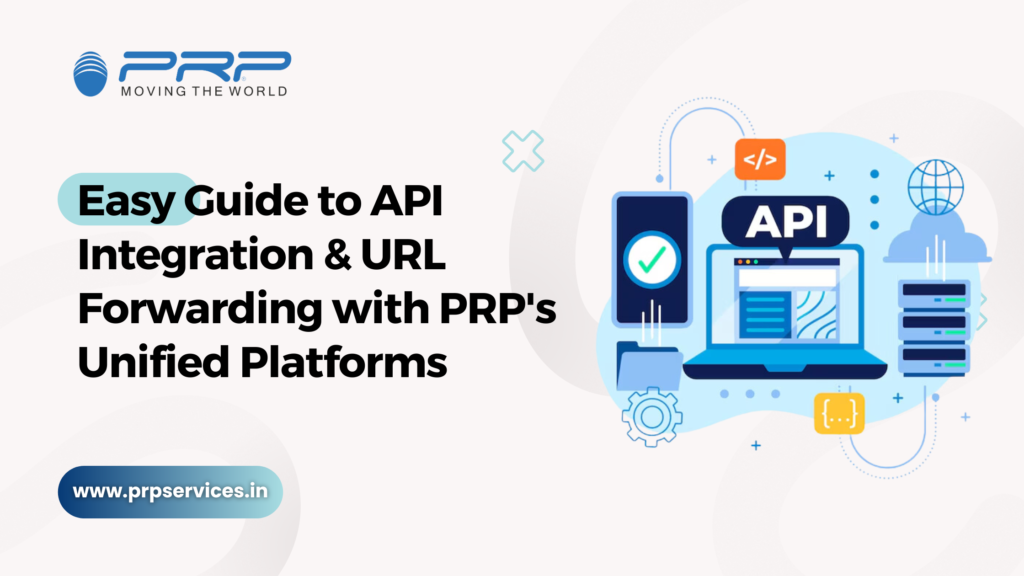In today’s interconnected world, businesses rely on a variety of software tools to manage their operations effectively. From customer relationship management (CRM) systems to e-commerce platforms and content management systems (CMS), these tools often need to work together to provide a seamless user experience and efficient workflow. This is where API integration and URL forwarding come into play. At PRP, we’re dedicated to offering powerful and versatile unified platforms designed to connect effortlessly with other systems. In this blog post, we’ll explore how API integration and URL forwarding can enhance your business operations, improve data management, and ensure security. Let’s dive into the details.
What is API Integration?
APIs (Application Programming Interfaces) enable software to interact with each other using a set of rules and protocols. It serves as a bridge, enabling data exchange and functionality sharing between different systems. For example, an API integration between PRP’s unified communication platform and your CRM system enables seamless data flow and coordinated operations.
How Does It Work?
API integration involves connecting PRP’s platform to other systems via APIs. Here’s a simplified overview of how it works:
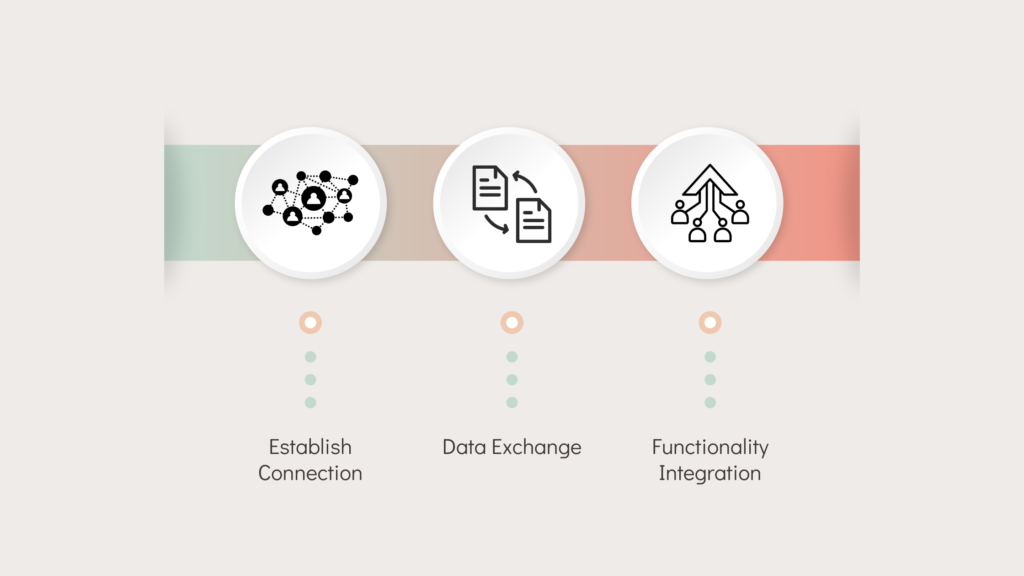
- Establish Connection: Using API keys and credentials, a secure connection is established between PRP’s platform and the external system.
- Data Exchange: Once connected, data can be exchanged between the systems. For instance, customer information from your CRM can be used to personalize messages sent through PRP’s platform.
- Functionality Integration: Beyond data exchange, APIs can also integrate specific functionalities. For example, you can automate workflows such as lead assignment or appointment scheduling directly from the PRP platform.
What is URL Forwarding?
URL forwarding, also known as URL redirection, is a technique used to automatically redirect users from one web address to another. This is particularly useful for streamlining navigation or consolidating multiple websites under a single domain.
How Does It Work?
When a user enters a specific URL, URL forwarding automatically redirects them to the designated destination. Here’s a basic process:
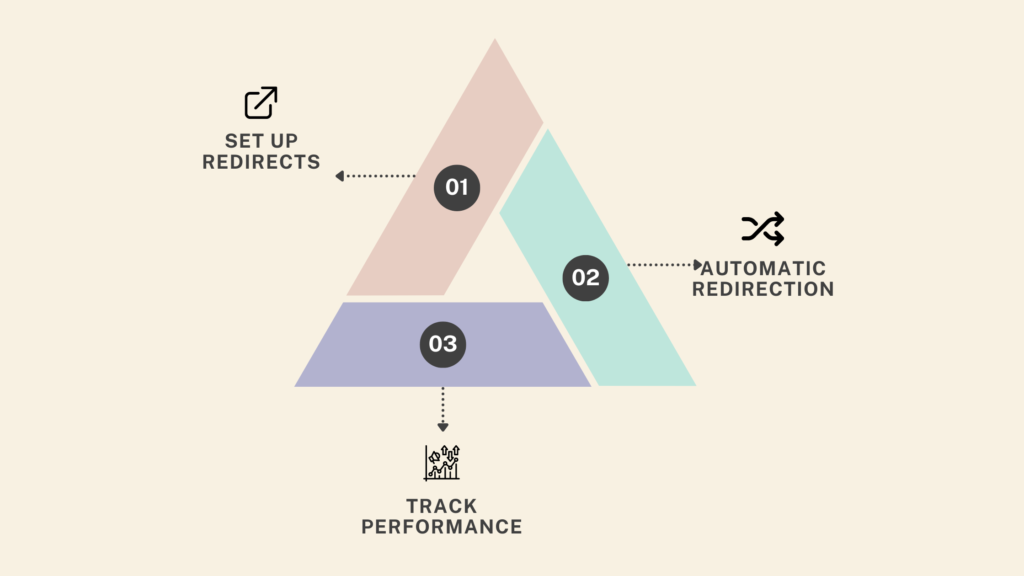
- Set Up Redirects: Configure the URLs you want to redirect and specify the target URLs.
- Automatic Redirection: When a user visits the original URL, they are seamlessly redirected to the new location.
- Track Performance: Track the performance of your redirects using analytics to understand user behavior and optimize your strategy.
Benefits of API Integration and URL Forwarding
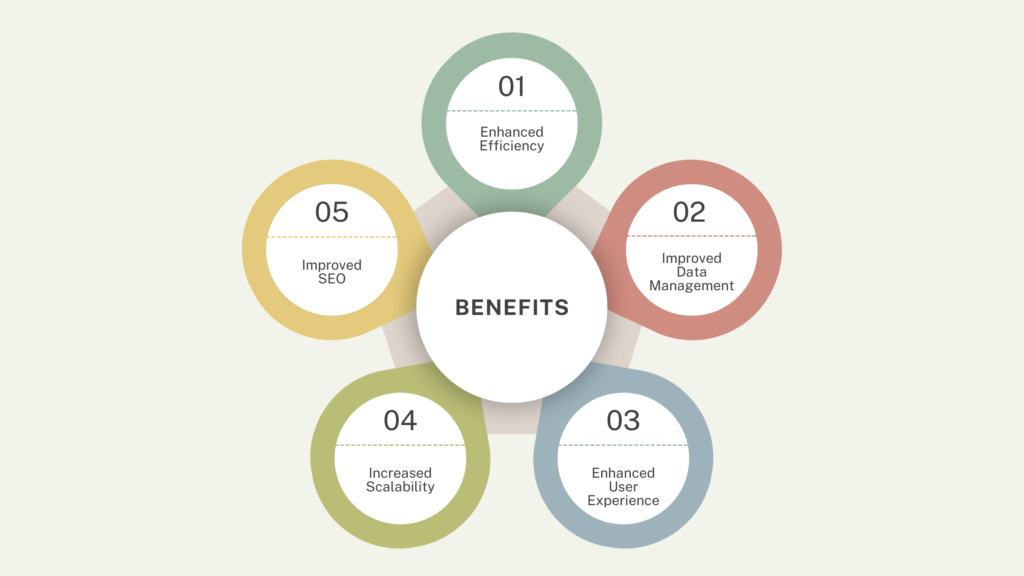
- Enhanced Efficiency: API integration automates repetitive tasks and reduces the risk of manual errors. By connecting different systems, you streamline workflows and enhance operational efficiency. For instance, integrating PRP’s platform with your CRM allows for automatic updates of customer data, reducing the need for manual data entry.
- Improved Data Management: Centralizing data across platforms helps maintain consistency and accuracy. API integration ensures that data is synchronized in real time, providing a single source of truth. URL forwarding also contributes to better data management by consolidating multiple web addresses into one, improving user navigation and reducing broken links.
- Enhanced User Experience: A unified approach to communication and web navigation creates a more intuitive user experience. With API integration, customers benefit from seamless interactions across different systems. URL forwarding simplifies navigation, making it easier for users to find what they’re looking for without encountering broken links or outdated content.
- Increased Scalability: The communication needs of your business grow as well. API integration supports scalability by enabling easy connections with new systems and services. URL forwarding helps manage increasing web traffic by consolidating URLs and improving website performance.
- Improved SEO: URL forwarding is beneficial for search engine optimization (SEO). By implementing redirects and canonicalization, you ensure that search engines correctly index your content and that users are directed to the most relevant pages. This can help improve your website’s search engine ranking and visibility.
Key Features of PRP's Unified Platforms
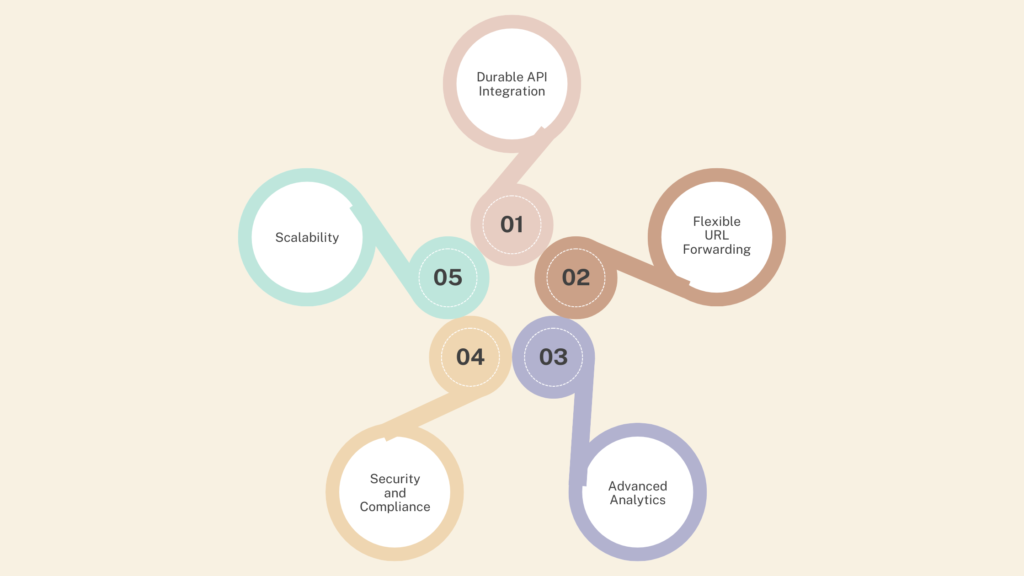
- Durable API Integration: PRP’s platform offers extensive API integration capabilities, allowing seamless connections with third-party applications and services. Whether you’re integrating with CRM systems, marketing tools, or e-commerce platforms, our APIs provide the flexibility to connect and share data effortlessly.
- Flexible URL Forwarding: Create custom redirects based on various criteria, including domain, path, and query parameters. This flexibility allows you to manage web traffic effectively and maintain a cohesive online presence.
- Advanced Analytics: Gain valuable insights into user behavior and API usage with our advanced analytics features. Track performance, monitor integration effectiveness, and make data-driven decisions to optimize your communication and web strategies.
- Security and Compliance: Security is a top priority at PRP. Our platform employs industry-leading security measures, including SSL encryption, to protect sensitive data during API interactions. We also ensure compliance with data protection regulations to safeguard your business and customer information.
- Scalability: Our platform is designed to handle increasing workloads and traffic without compromising performance. Whether you’re expanding your operations or integrating with new systems, PRP’s unified platform scales with your business needs.
Use Cases for API Integration and URL Forwarding
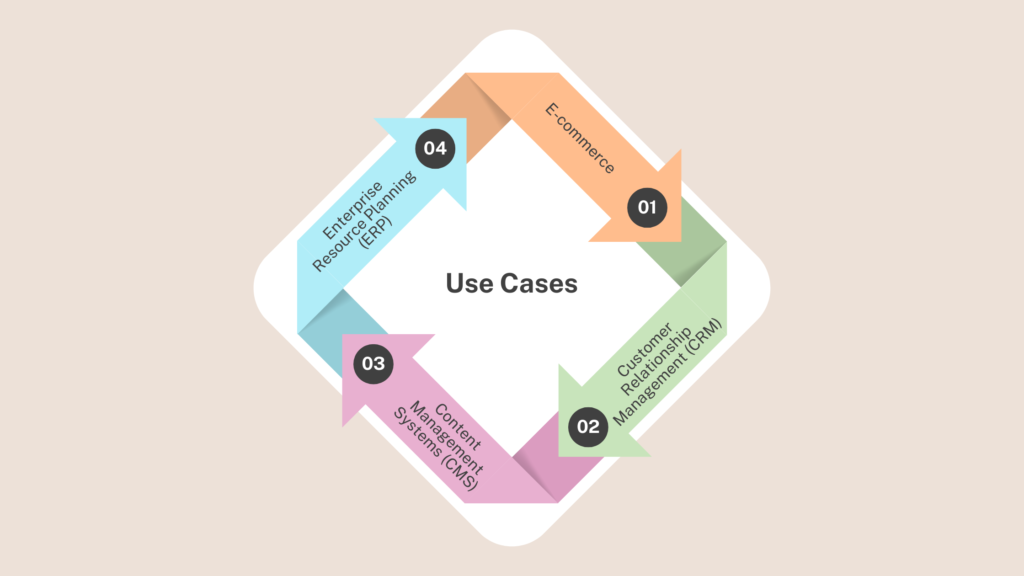
- E-commerce: Integrate with payment gateways, shipping carriers, and inventory management systems to streamline your e-commerce operations. API integration allows for real-time updates and seamless transactions, enhancing your customers’ shopping experience.
- Customer Relationship Management (CRM): Connect with marketing automation, sales enablement, and customer support platforms to improve customer interactions and drive sales. API integration ensures that your Customer Relationship Management (CRM) system is synchronized with PRP’s platform, providing a unified view of customer data.
- Content Management Systems (CMS): Integrate with social media, email marketing, and analytics tools to manage content effectively and track performance. URL forwarding can help consolidate multiple web addresses under a single domain, improving user experience and SEO.
- Enterprise Resource Planning (ERP): Connect with finance, human resources, and supply chain management systems to optimize your ERP processes. API integration enables efficient data exchange and coordination between different business functions.
Why Choose PRP Services for API Integration and URL Forwarding
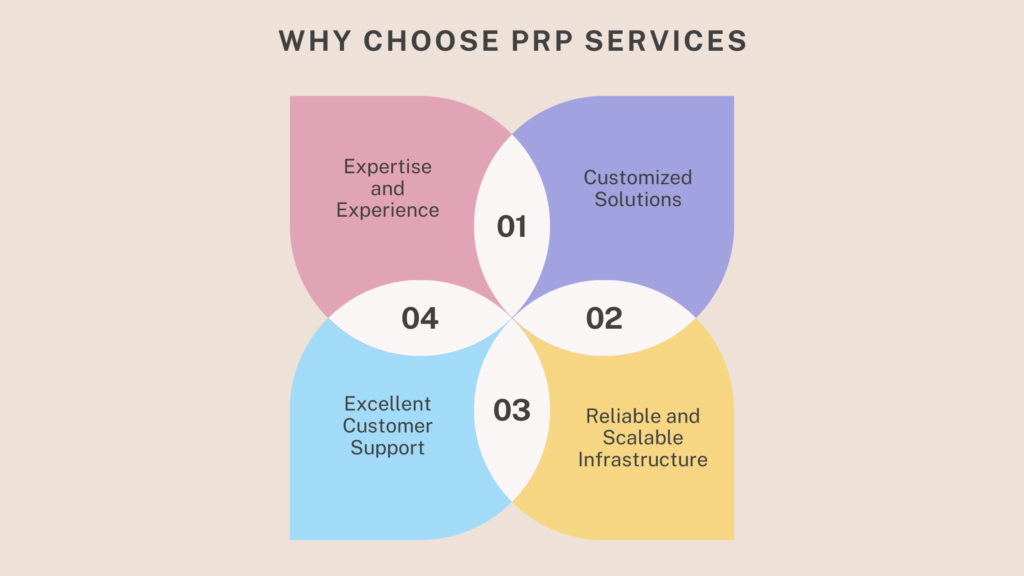
- Expertise and Experience: Our team of experts has a proven track record in delivering successful integration solutions. We understand the complexities of connecting various systems and provide tailored solutions to meet your specific needs.
- Customized Solutions: PRP Services offers customized integration solutions designed to align with your business goals. Whether you need API integration or URL forwarding, we work with you to develop strategies that enhance your operations.
- Reliable and Scalable Infrastructure: Our platform is built for reliability and scalability, ensuring optimal performance as your business grows. We handle high volumes of traffic and provide the infrastructure needed to support your expanding needs.
- Excellent Customer Support: We offer dedicated support throughout the integration process, from initial setup to ongoing maintenance. Our team is here to assist you with any questions or challenges, ensuring a smooth and successful integration experience.
Security Implications of Integrating PRP’s Unified Platforms with External Systems
- End-to-End Encryption: PRP’s platform utilizes end-to-end encryption to protect all communications, including SMS, WhatsApp, and voice calls. This encryption ensures that data remains secure and confidential, even as it is transmitted across different systems.
- Secure API Connections: When integrating with third-party systems, PRP employs secure API connections with SSL/TLS encryption. This safeguards data during transmission, reducing the risk of breaches or interception.
- Access Controls and Authentication: Our platform includes advanced access control mechanisms such as role-based permissions and two-factor authentication (2FA). These measures ensure that only authorized personnel can access critical data and communication channels.
- Compliance with Data Protection Regulations: PRP’s platform adheres to industry standards and data protection regulations, including GDPR and TRAI guidelines. This compliance ensures that your business remains within legal requirements while integrating with other systems.
Conclusion
API integration and URL forwarding are essential components of a modern communication strategy. By connecting PRP’s unified platforms with other systems, you can enhance efficiency, improve data management, and provide a seamless user experience. Our expertise, customized solutions, and robust security measures make PRP Services the ideal partner for your integration needs.
Ready to unlock the full potential of your PRP unified platforms? Contact us today to learn more about our API integration and URL forwarding solutions. Let’s build the bridges that connect your systems and drive your business forward.

